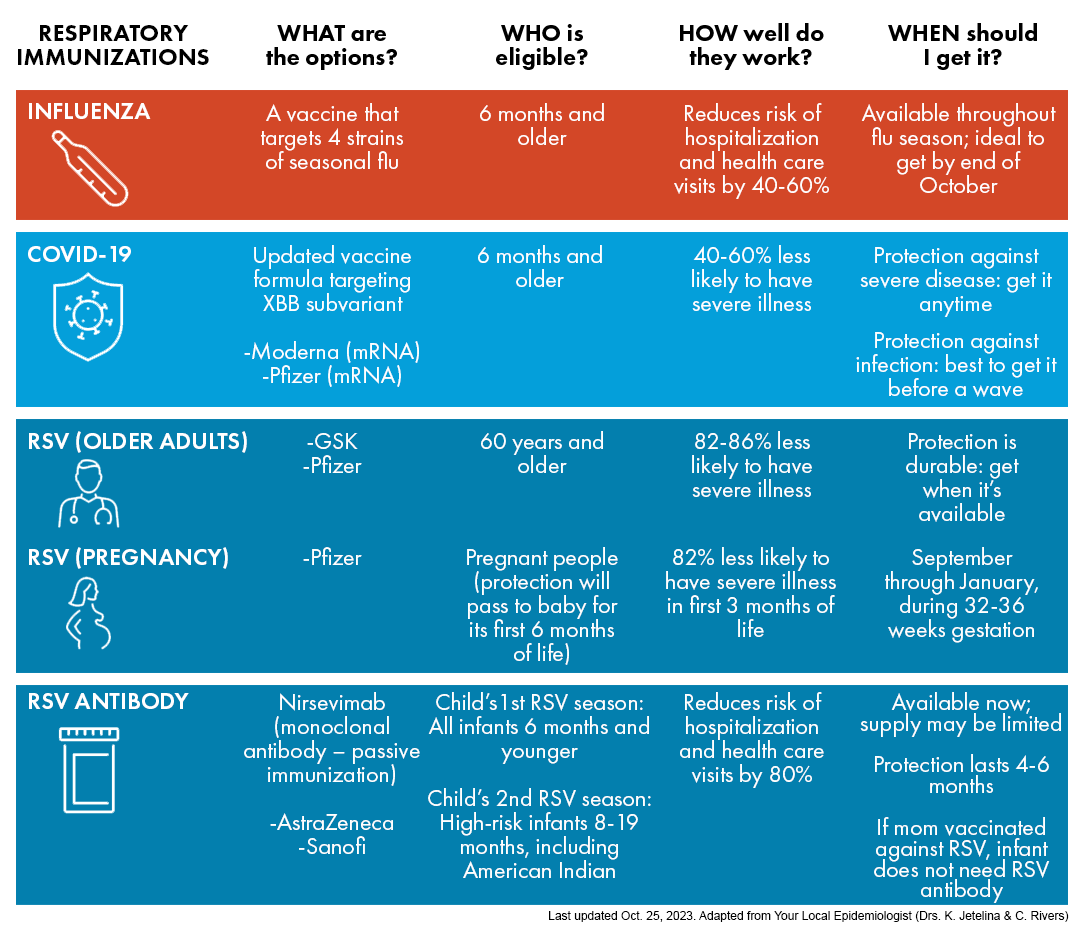When you may have a respiratory virus...
Stay home and away from others (including people you live with who are not sick) if you have respiratory virus symptoms that aren't better explained by another cause. These symptoms can include fever, chills, fatigue, cough, runny nose, and headache, among others.*
Example 1: Person with fever and symptoms, or without symptoms.

How it works
When you have a respiratory virus infection, you can spread it to others. How long someone can spread the virus depends on different factors, including how sick they are (severity) and how long their illness lasts (duration). This is not the same for everyone.
When, for at least 24 hours, your symptoms are getting better overall and you have not had a fever (and are not using fever-reducing medication), you are typically less contagious, but it still takes more time for your body to fully get rid of the virus. During this time, you may still be able to spread the virus to others. Taking precautions for the next 5 days can help reduce this risk. After this 5-day period, you are typically much less likely to be contagious. However, some people, especially people with weakened immune systems, can continue to spread the virus for a longer period of time. For COVID-19, taking an antigen test can help you know how likely you are to spread the virus. A positive test tends to mean it is more likely that you can spread the virus to others.

